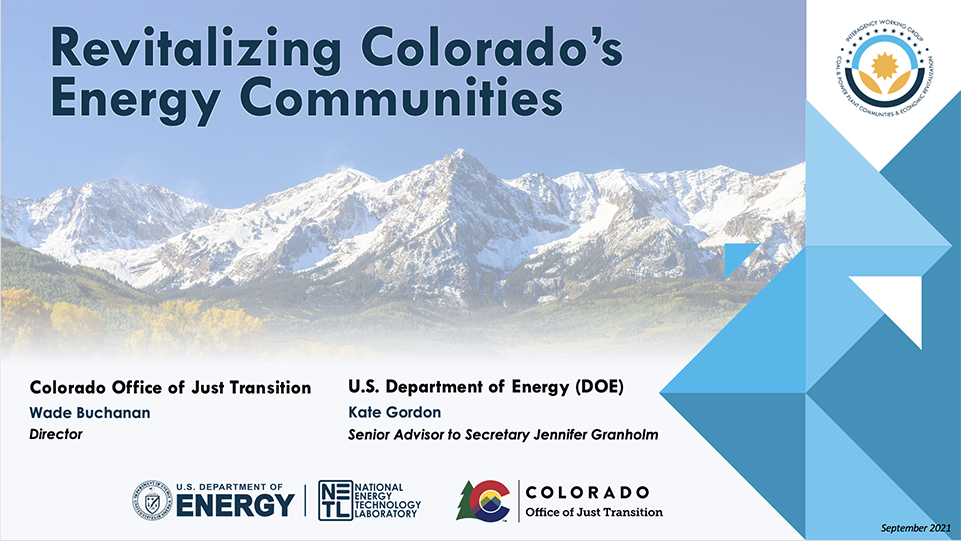Yesterday, Interagency Working Group (IWG) Executive Director Brian Anderson, Ph.D., federal agency representatives and local partner organizations held a virtual workshop focused on regional economic revitalization and available federal funding for Colorado energy communities, providing actionable pathways for communities to catalyze economic growth.
A panel of local partners, including Colorado Office of Just Transition, Colorado Office of Economic Development and International Trade, the Colorado Department of Local Affairs, the West End Economic Development Corporation, and the City of Craig, discussed ways in which federal funding can create more robust and secure economies and provided relevant perspectives when answering questions from attendees.
“Coal has been central to Colorado’s economic growth for decades and many coal communities are negatively impacted by the nation’s shifting energy economy,” said Anderson. “The IWG is committed to helping Colorado’s energy communities create good-paying jobs and spur long-term economic growth in these crucial areas.”
The third in a series of IWG-hosted workshops targeting energy communities across the country, yesterday’s webinar discussed the $300 million in federal funding that is part of the U.S. Economic Development Administration’s (EDA) Coal Communities Commitment, the largest funding effort for coal communities in the history of the EDA. The event also featured representatives from the U.S. Department of Energy (DOE), U.S. Department of Agriculture (USDA), U.S. Department of Housing and Urban Development (HUD), U.S. Department of Interior, and U.S. Department of Labor.
“We are grateful to these federal agencies coming together with shared purpose, and to the local partner organizations working tirelessly to support energy workers and communities in Colorado,” said Anderson.
Established by an Executive Order in President Biden’s first week in office, the IWG is pursuing a whole-of-government approach to create good-paying union jobs, spur economic revitalization, remediate environmental degradation and support energy workers in coal, oil and gas, and power plant communities across the country as the U.S. prepares to undergo a historic energy evolution to a carbon emission-free electricity sector by 2035 and economy-wide net-zero emissions by 2050.
The webinar recording, presentation slides, and final agenda can be found here.

 )
or https:// means you’ve safely connected to
the .gov website. Share sensitive information only on official,
secure websites.
)
or https:// means you’ve safely connected to
the .gov website. Share sensitive information only on official,
secure websites.

